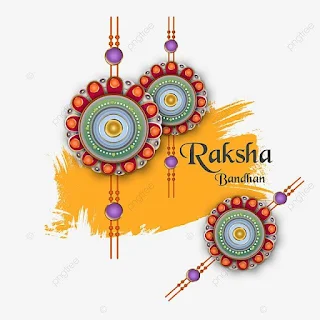Rakshabandhan: A Celebration of Sibling Love
Rakshabandhan is an auspicious festival celebrated in India, which signifies the eternal bond between brothers and sisters. This joyous occasion falls on the full moon day of the Hindu month of Shravana. On this day, sisters tie a sacred thread, known as a rakhi, around their brothers' wrists, symbolizing their love, protection, and mutual respect. In return, brothers promise to always be there for their sisters, offering them gifts and blessings.
The Significance of Rakshabandhan
Rakshabandhan holds deep cultural and emotional importance in Indian society. It transcends biological relationships and extends to cousins, close friends, and even neighbors, reinforcing the sense of unity and togetherness. The festival celebrates the unique bond between siblings, emphasizing the values of love, care, and support.
Rakshabandhan is an important festival in India that celebrates the bond between brothers and sisters. Sisters tie a rakhi on their brother's wrist, symbolizing their love and protection for their brother. In return, brothers promise to protect their sisters. The festival is celebrated every year on the full moon day in the Hindu month of Shravana.
During Rakshabandhan, families come together to celebrate the bond between siblings. Sisters tie rakhis on their brothers' wrists, and brothers give their sisters gifts. The festival is also celebrated by cousins, friends, and neighbors who consider each other as siblings. The festival promotes love, unity, and harmony among people.
Rakshabandhan has a rich history and mythology associated with it. According to one legend, Lord Krishna cut his finger while fighting the demon king Shishupal.
Draupadi, the wife of the Pandavas, tore a piece of cloth from her saree and tied it around the wound to stop the bleeding. Touched by her gesture, Lord Krishna promised to protect her.
In another legend, Yama, the god of death, was moved by the love and devotion of his sister Yamuna and gave her the gift of immortality.
Rituals and Customs
Rakshabandhan is a day full of meaningful rituals and customs. Sisters start the day by preparing a thali (plate) with a rakhi, roli (vermilion), rice, sweets, and a diya (oil lamp). They perform aarti (a ritual of waving the lamp) and tie the rakhi around their brothers' wrists. Brothers, in turn, shower their sisters with gifts, expressing their affection and gratitude. The day is also marked by family gatherings, feasting on delectable sweets, and exchanging warm wishes.
The Essence of Rakhi
The rakhi thread itself is not just a piece of silk or cotton; it holds immense sentimental value. It symbolizes the sister's love and prayers for her brother's well-being and protection. The brother, adorned with the rakhi, takes on the responsibility of safeguarding his sister from any harm or evil influences. The thread acts as a tangible reminder of their bond, even when they are physically apart.
Evolution of Rakshabandhan
Over the years, Rakshabandhan has evolved to embrace changing times. It has become more inclusive, with people tying rakhis on the wrists of soldiers, police officers, and public figures, acknowledging their service and sacrifice. The festival has also transcended geographical boundaries, with sisters sending rakhis to their brothers living abroad, strengthening the emotional connection despite the distance.
Conclusion
Rakshabandhan is not merely a festival; it is an expression of love, respect, and gratitude. It reinforces the importance of sibling relationships and encourages individuals to cherish and nurture these bonds. This festival serves as a reminder that family ties are precious and enduring, transcending time and distance. So, let us celebrate Rakshabandhan with joy and enthusiasm, and cherish the beautiful bond we share with our siblings.


No comments:
Post a Comment
Thanks..